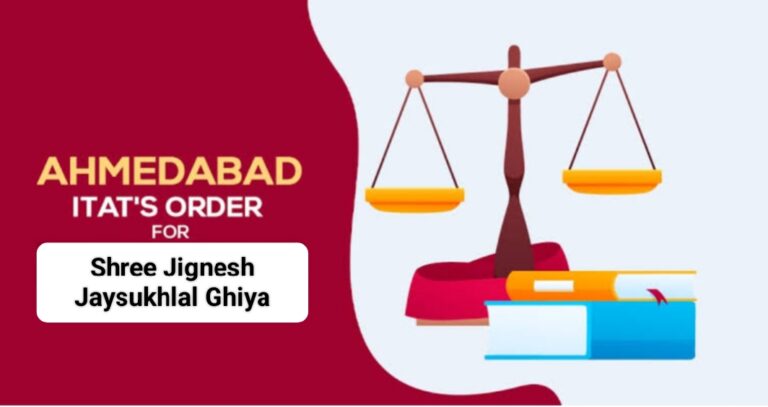The ITAT also rejected the AO’s argument that the capital gains exemption should only cover the amount directly used for constructing the new house.
The Ahmedabad Bench of the Income Tax Appellate Tribunal (ITAT) has ruled that a taxpayer can claim a tax deduction under Section 54 of the Income Tax Act, 1961 (ITA), even if the proceeds from selling an old property are not directly used to purchase or construct a new asset. This ruling came in the case of Jignesh Jaysukhlal Ghiya, a taxpayer who sold a residential property and sought a capital gains exemption under Section 54.
Case Background
Jignesh Jaysukhlal, the taxpayer in this case, owned a residential property that he decided to sell, resulting in capital gains. He initiated the construction of a new house but had already purchased the land for this construction before selling his original property. On filing his tax return, Jignesh claimed a deduction under Section 54, which offers exemption from capital gains tax if the proceeds are reinvested in the purchase or construction of another residential property within a specified timeframe.
Section 54 of the Income Tax Act
Section 54 of the ITA allows capital gains tax exemptions if the taxpayer:
Purchases a new residential property within one year before or two years after the sale of the original property, or
Completes the construction of a new house within three years after the sale.
Also Read: GST Taxpayers Without Valid Bank Account to Be Barred from Filing GSTR-1 from September 1
Assessing Officer’s (AO) Objection
During the scrutiny of Jignesh’s returns, the Assessing Officer (AO) disallowed the claimed deduction. The AO argued that since the construction of the new house began before the sale of the original property, the taxpayer was ineligible for the exemption under Section 54. The AO’s interpretation was that the law required the sale proceeds to be directly used for the construction or purchase of the new property. Furthermore, the AO stated that only the cost of the house construction, excluding the land cost, should qualify for the deduction.
Appeals Process
Jignesh appealed the AO’s decision to the Commissioner of Income Tax (Appeals), who upheld the AO’s interpretation and denied the deduction. Unsatisfied, Jignesh further appealed to the Income Tax Appellate Tribunal (ITAT).
ITAT’s Ruling
The ITAT bench, comprising Mr. Senthil Kumar and Mr. Narendra Prasad Sinha, ruled in favor of the taxpayer. The bench referred to the precise language of Section 54(1) of the ITA, which states that the exemption applies if the new residential property is purchased within one year before or two years after the sale, or if it is constructed within three years after the sale.
The tribunal clarified that the law does not mandate the construction of the new house to begin after the sale of the original property. The key requirement is that the construction should be completed within three years after the sale, which was satisfied in case.
The ITAT also rejected the AO’s argument that the capital gains exemption should only cover the amount directly used for constructing the new house. The tribunal emphasized that Section 54 does not stipulate that the exemption is restricted to the use of specific sale proceeds. Instead, the exemption is granted based on acquiring or constructing a new residential property within the permitted timeframe, regardless of the source of funds.
Conclusion
The ITAT’s ruling underscores that the timing of the construction commencement is irrelevant as long as the new house is completed within the prescribed period. It also reaffirms that the capital gains exemption under Section 54 is not contingent upon using specific proceeds from the property sale. Therefore, the taxpayer was granted the deduction under Section 54, and the additional income inclusion by the AO was reversed.
This ruling provides a favourable interpretation of Section 54 for taxpayers seeking capital gains exemption and reinforces the importance of meeting construction or purchase timelines, rather than focusing on the source of funds used for the new property.
READ MORE
